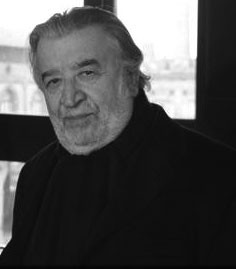Pupi Avati
Настоящее имя: Pupi Avati
Об исполнителе:
Giuseppe Avati, better known as Pupi Avati (born November 3, 1938), is an Italian film director, producer and screenwriter. Pupi Avati was born in Bologna. After ending his study Political Science at the Bologna university, he took on work in a frozen food company and at the same time developed a passion for jazz, becoming an amateur musician. But with the debut of his movie Blood Relations (Balsamus, l'uomo di Satana, 1968) he stepped into the business of film-making. This first movie is also one of the few that he didn't write himself. A year later his second movie Thomas (1969) followed, though not released in Italy, and another five years later the bizarre La mazurka del barone, della santa e del fico fiorone (1974), a movie in a style reminiscent of the movies of Federico Fellini with an almost fairytale-like atmosphere. In 1975, Avati made the musical fantasy Bordella, which caused a commotion resulting in some censorship, and a year later he directed a horror film, The House with Laughing Windows (La casa dalle finestre che ridono, 1976), a movie set in the Po Valley, not far from his hometown Bologna. This movie was followed up with Tutti defunti... tranne i morti (1977), a black comedy with a theme very similar to his previous movie but treated in a parodistic, farcical way. Throughout his whole career Avati always found a great ease in directing any "genre" of movie: he has been successful in horrors (laughing windows, zeder, the mysterious enchanter, the hideout), medieval period pieces (magnificat, I cavalieri che fecero l'impresa), dramas (regalo di natale, festival, brothers and sisters, la rivincita di natale), romantic comedies (the heart is elsewhere), jazz comedies (jazz band, ma quando arrivano le ragazze?), buddy comedies (Gli amici del Bar Margherita), even a jazz biopic (bix) and many more, proving himself one of the most versatile directors in a cinema industry almost too anxious to pigeonhole an author in a narrow, well-defined category. Avati then showed his ability to direct TV movies as well. It resulted in the two successful dramas Jazz band (1978) and Cinema!!! (1979). Sharing the same theme, his next movies, for the cinemas again, were the fairytale-like Le strelle nel fosso (1979), the charming A School Outing (Una gita scolastica) (1983), We Three (Noi tre) (1984), about a part of the life of Mozart, the parable Graduation Party (Festa di laurea) (1985), and The Story of Boys and Girls (Storia di ragazzi e ragazze) (1988) and Declarations of Love (Dichiarazioni d’amore) (1994). Some of his most successful films were Impiegati (1985), Christmas Present (Regalo di Natale, 1986) and The Last Minute (Ultimo minuto, 1987). True to his polyhedric style Avati injects heavy doses of struggle and suffering in his stories...but what the characters will do with them it's entirely up to them...they can use them to grow stronger and 'come of age', like the young clerk of Impiegati, they can turn the table in a last, angry, stubborn comeback, like the aging football general manager of The Last Minute, or they can be just defeated and blown away by them...Avati seems more interested in capturing the secret of human reaction to adversities than to preach values or morals via his camerawork. This refuse of prejudiced, 'ideological' moviemaking hides perhaps the secret of his ease in shaping one different move after the other. Il cuore altrove (2003), received the David di Donatello Award for Best Director.
